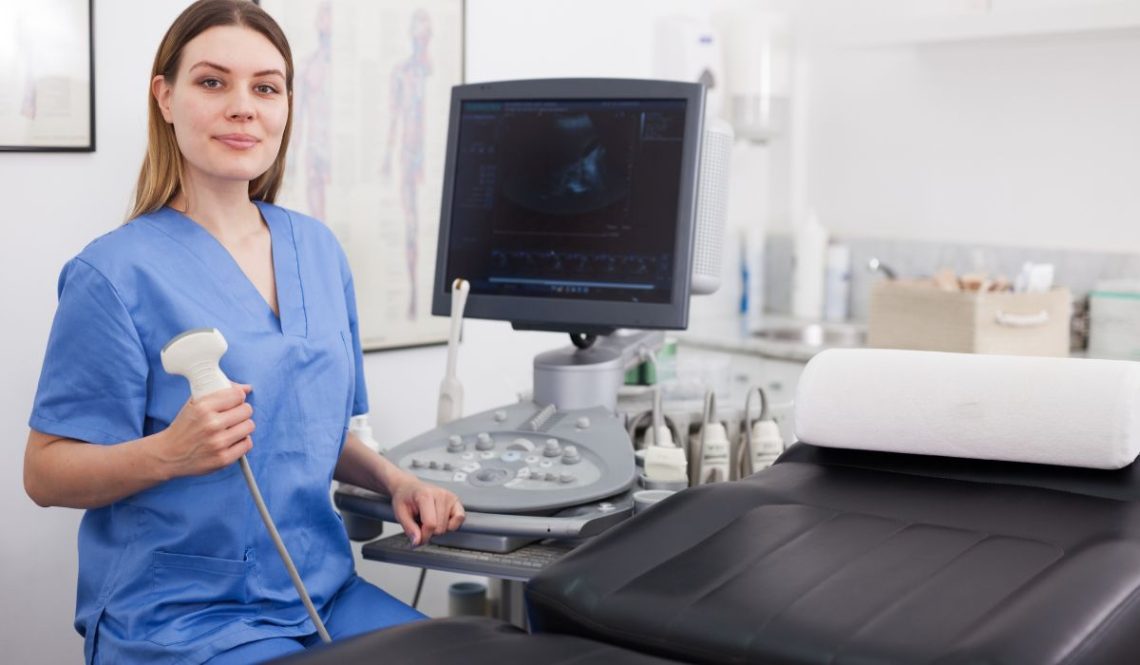
How to become a travel sonographer | SkillsAndTech
You may be wondering how to become a travel sonographer. Well, the process is not as complicated as you may think. In fact, it’s rather simple if you know where to look and what to do. In this blog post, we will explore how to become a travel sonographer.
We will discuss the steps you need to take and the resources you need to utilize in order to make your dream of becoming a travel sonographer a reality.
Table of Contents
What is a travel sonographer?
A travel sonographer is a medical professional who specializes in the use of ultrasound technology to diagnose and treat medical conditions.
Sonographers use ultrasound devices to produce images of the inside of the body, which are then used by physicians to make diagnoses and develop treatment plans. Travel sonographers often work in hospitals or clinics, but may also work in private practices or research settings.
Becoming a travel sonographer requires completing an accredited educational program in diagnostic medical sonography. Most programs take two to four years to complete, and lead to either an associate’s degree or a bachelor’s degree.
After completing an accredited program, students must pass a national certification exam administered by the American Registry for Diagnostic Medical Sonography (ARDMS). Once certified, sonographers can apply for state licensure, if required.
Travel sonographers typically earn higher salaries than those who work in traditional settings, due to the added responsibility of working in multiple locations. In addition, travel sonographers often receive benefits such as housing allowances and paid vacation time.
What are the requirements to become a travel sonographer?
In order to become a travel sonographer, there are several requirements that must be met. First and foremost, one must have graduated from an accredited ultrasound program. Secondly, one must have at least two years of experience working as a sonographer in a clinical setting.
Additionally, it is recommended that travel sonographers be certified by the American Registry for Diagnostic Medical Sonography (ARDMS). Finally, many employers prefer to hire travel sonographers who are proficient in multiple ultrasound modalities.
How to find travel sonographer jobs?
If you’re looking for a new and exciting way to Practice sonography, then traveling may be the perfect option for you! Here’s everything you need to know about finding travel sonographer jobs.
There are a few different ways that you can go about finding travel sonographer jobs. The first place to start is by using a search engine like Google or Bing. Simply type in “travel sonographer jobs” and see what comes up.
Another great way to find travel sonographer jobs is by networking with other professionals in the field. Attend conferences, trade shows, or other events where sonographers are likely to be in attendance. This is a great way to meet potential employers and learn about new opportunities.
You can also check with companies that offer temporary or contract-based staffing solutions. These companies often have relationships with healthcare facilities across the country and can help connect you with open positions.
Once you’ve found a few potential job opportunities, the next step is to apply and interview for the role. Be sure to emphasize your willingness to travel and your excitement about working in new environments. With a little effort, you should be able to land the perfect travel sonographer job!
The benefits of being a travel sonographer
If you are considering a career in sonography, you may be wondering what the benefits are of becoming a travel sonographer. Here are just a few of the many advantages that come with this rewarding profession:
1. You get to see the world
As a travel sonographer, you will have the opportunity to work in a variety of locations across the globe. This is a great way to see new places and experience different cultures firsthand.
2. You earn a competitive salary
Travel sonographers typically earn more than their counterparts who work in traditional settings. This is due to the higher demand for their skillset in areas with less access to healthcare.
3. You enjoy flexible hours
One of the best things about being a travel sonographer is that you can often choose your own hours and schedule. This means that you can tailor your work around your personal life and commitments, which is perfect for those with family or other responsibilities outside of work.
4. You get to help people
As a medical professional, you will have the satisfaction of knowing that you are making a difference in people’s lives by helping them receive the treatment they need.
5. You gain valuable experience
Working as a travel sonographer will give you exposure to different cases and patients, which can help broaden your skillset and knowledge base. This can be beneficial when applying for jobs in the future, as well as for your continued professional development
The downside of being a travel sonographer
There are a few downsides to being a travel sonographer. The first is that you will be away from home for long periods of time. This can be tough on your family and friends, who may not understand why you’re gone so much. Additionally, travel sonographers often have to work strange hours, which can make it difficult to maintain a social life. Finally, because you’re constantly moving around, it can be hard to keep up with your continuing education requirements.
How to make the most of your travel sonographer experience
If you’re thinking about becoming a travel sonographer, there are a few things you can do to make the most of your experience. First, research the area you’ll be working in and familiarize yourself with the common procedures performed there. This will help you hit the ground running when you start your assignment.
Next, take some time to get to know your fellow travelers. You’ll be spending a lot of time with them, so it’s helpful to form a good relationship from the start. exchange tips on restaurants, attractions, and things to do in your free time.
Finally, remember that as a travel sonographer, you have the opportunity to learn from different facilities and providers. So don’t be afraid to ask questions and absorb as much knowledge as you can. By taking advantage of all these opportunities, you can make your travel sonographer experience truly enriching and rewarding.
Conclusion
So, there you have it! These are the steps that you need to take in order to become a travel sonographer. Just remember to stay passionate about your chosen career, be willing to learn new things along the way, and don’t forget to enjoy the ride!





